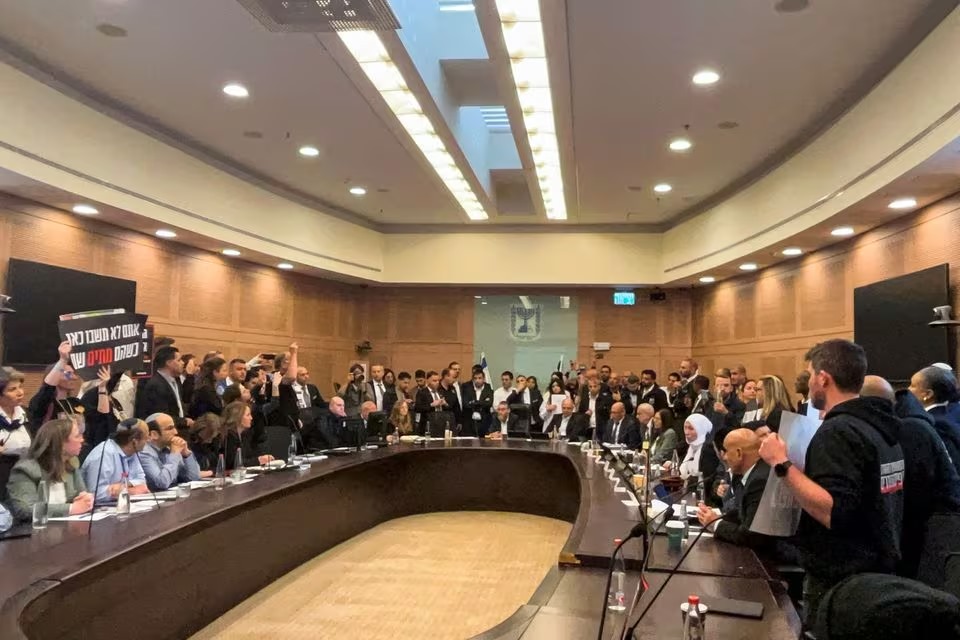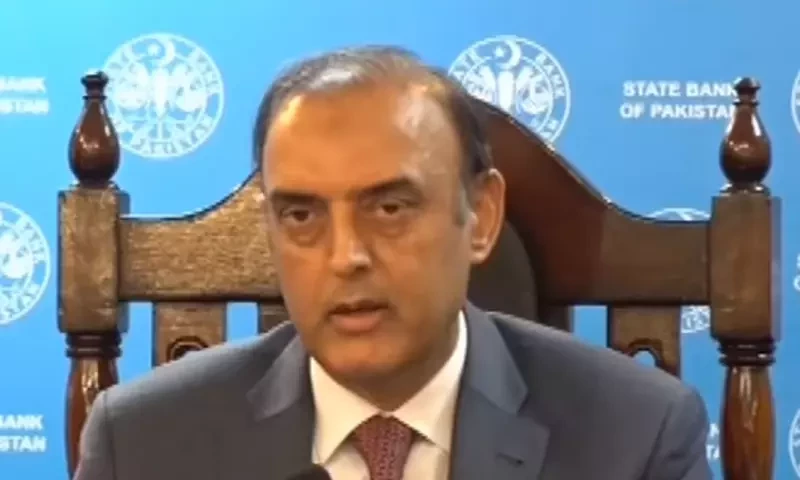In a dramatic turn of events, relatives of Israelis held hostage by Palestinian gunmen in Gaza forcefully entered the Israeli parliament, intensifying calls for decisive action. The intrusion occurred during a parliamentary session in Jerusalem, with approximately 20 relatives demanding increased efforts to secure the release of their loved ones.
The incident marked a manifestation of growing domestic dissent, highlighting the gravity of the situation in the fourth month of the conflict between Israel and Hamas in Gaza. One woman, holding pictures of three family members among the 253 individuals seized in the October 7 cross-border Hamas rampage, emotionally pleaded for the return of at least one of her kin alive.
Protesters displayed signs conveying messages such as “You will not sit here while they die there,” while chanting, “Release them now, now, now!” The relatives’ actions underscored the deep emotional toll of the crisis, as they sought to draw attention to the urgent need for a resolution.
READ MORE: Is Sania Mirza Set to Tie the Knot with Indian Pacer Mohammed Shami?
Efforts by the United States, Qatar, and Egypt to mediate the release of the hostages appeared to be falling short of reconciling Israel’s determination to dismantle Hamas and the militant group’s demand for a complete withdrawal of Israeli forces and the release of thousands of Palestinian prisoners.
The fate of the hostages, with Israel reporting that 27 have died in Gaza, has captivated the nation’s attention. However, concerns are rising among relatives that the prolonged conflict may lead to war fatigue, potentially diverting focus away from the urgent need to secure the release of those held captive.
Demonstrations, initially aimed at fostering national unity, have taken on a more aggressive tone. Families and supporters have extended their protests to the vicinity of Prime Minister Benjamin Netanyahu’s residence and the Knesset building, vowing not to leave until their loved ones are freed.
Eli Stivi, whose son Idan is among the hostages in Gaza, declared, “We will not leave him until the hostages are back.” Weekend rallies, initially focused on the release of the hostages, have evolved into broader demonstrations calling for a change in leadership, reflecting the shifting sentiments among the public.
The political landscape, which witnessed a temporary unity following the October 7 Hamas attack, is experiencing renewed fractures. With the war in Gaza now in its fourth month and opinion polls indicating diminishing support for Netanyahu, demands for leadership changes have gained momentum.
Over the weekend, thousands took to the streets in Tel Aviv, Haifa, and Jerusalem, demanding an election. Some protesters briefly blocked a highway in Tel Aviv, emphasizing the intensity of their call for political change.
Inside the Knesset on Monday, parliamentary ushers initially attempted to block the protesting relatives but eventually allowed them to express their grievances during the Finance Committee session. The Committee’s chairman, Moshe Gafni, called for a temporary halt to the ongoing economic briefing to address the emotional protesters.
“Redeeming captives is the most important precept in Judaism, especially in this case, where there is an urgency to preserving life,” Gafni stated. However, he also emphasized that quitting the coalition would not achieve the desired outcomes.
On the same day, Netanyahu met with hostage families, informing them that Hamas had not presented a viable offer for the release of their loved ones. This statement followed Netanyahu’s rejection of Hamas’ conditions, which included a complete Israeli withdrawal and leaving Hamas in power in Gaza.
Outside Netanyahu’s residence on Azza Street, which aptly translates to Gaza in Hebrew, The Hostages and Missing Persons Families Forum maintained a vigil, urging the prime minister to advance a swap deal and share his position transparently with the Israeli public.
As the crisis unfolds, it continues to grip the nation, with the hostages’ fate entwined with the broader geopolitical complexities of the region.





